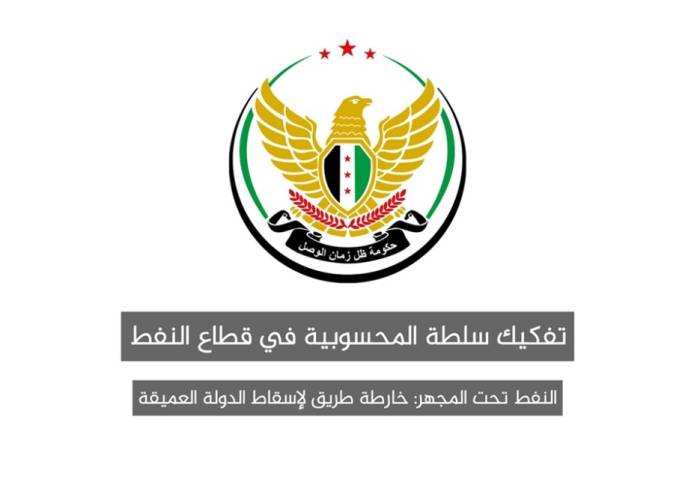Corruption as an Integrated System Corruption in the Syrian oil sector is not limited to individual cases. Rather, it constitutes a system based on three pillars: information monopoly, alliances of influence, and the absence of accountability. Achieving reform requires dismantling these pillars through simultaneous steps encompassing management, finance, law, and technology.
Administrative Reform
This is achieved by dismantling networks of influence, enhancing efficiency, and restructuring senior leadership (which has been partially implemented but not fully implemented). It also involves forming an independent (local) investigative committee to review all appointments over the past decade and eliminating those based on favoritism, political loyalties, or unethical relationships.
Implementing administrative reform requires preventing the reuse of dismissed officials in advisory or informal roles, establishing an effective mechanism to break the monopoly on information and share data across all administrative levels, and ending the rigid vertical hierarchy.
Adopting a permanent and confidential evaluation that includes all levels of work, especially the lower levels, given their direct connection to performance, contributes significantly to administrative reform. Activating internal oversight, while granting each directorate clear powers for evaluation and accountability, also contributes to this.
Building Independent Staff
Launching training programs in partnership with local and international universities to qualify a new generation of administrators, engineers, and technicians. Linking promotions to the results of semi-annual performance evaluations, and activating weekly training programs to transfer expertise. Adopting internal training in each directorate, while ensuring knowledge exchange, and establishing an electronic "competency bank" containing employee records and skills, ensures transparency in appointments.
Financial Reform: Contract Transparency and Combating Waste
To reform the tendering system, the ministry must publish all contracts on a unified electronic platform, detailing all parties, values, and justifications, in accordance with Transparency International standards. Direct contracts with shell companies must be abolished and replaced with public tenders monitored via live broadcast.
Strengthening Financial Oversight
To strengthen oversight, a blockchain system must be implemented to track the revenues of every barrel of oil from extraction to export, similar to Norway. Establish an independent internal audit unit with the authority to refer corrupt individuals directly to the judiciary.
Legal Reform: Holding Corrupt Individuals Accountable and Closing Loopholes
A law should be passed criminalizing incompetent appointments and requiring officials to disclose their financial assets and the contracts of their immediate relatives. Impose prison sentences and fines on anyone involved in deals that harm the public interest, with assets confiscated during investigations. An electronic platform for reporting corruption should be established that ensures complete confidentiality and prevents the prosecution of whistleblowers, as in the Iraqi experience.
4. Technological Transformation: From Chaos to Digital Governance
The key steps of digital transformation include digitizing all procedures (contracts, purchase orders, production reports) and linking them to a central database. Artificial intelligence should be used to analyze spending patterns and detect duplication and suspicions, such as the recurring "emergency maintenance" clause. A national center for oil and gas data management should be established, with precise powers of access to information defined to prevent leakage. Investing in the Future: From a Rentier Economy to Diversification
- 20% of oil revenues should also be diverted to building modern refineries and petrochemical plants, with the goal of reducing imports and creating jobs. Small businesses should also be encouraged to invest in renewable energy through generous tax exemptions, and 5% of the ministry's budget should be allocated to support research and development in environmentally friendly extraction technologies and converting waste gas into energy.
Community Participation: From Marginalization to Partnership
To this end, an application should be launched that allows citizens to report suspected corruption (oil spills, broken equipment) in exchange for financial rewards. Periodic reports should be published in simplified language detailing oil sector revenues and expenditures. Periodic conferences should be held to discuss energy policies, involving youth and local and international experts, and learning from experiences like those of the UAE.
Reform is not an option, but an existential necessity.
The need to transform the Ministry of Energy from a "deep state" into a national institution requires political will to confront networks of influence, absolute transparency in every action, and investment in human resources. International expertise should also be sought to ensure the integrity of the reform.
Without this, oil wealth will remain a burden on the country rather than a source of prosperity.

Zaman Al Wasl
















Comments About This Article
Please fill the fields below.